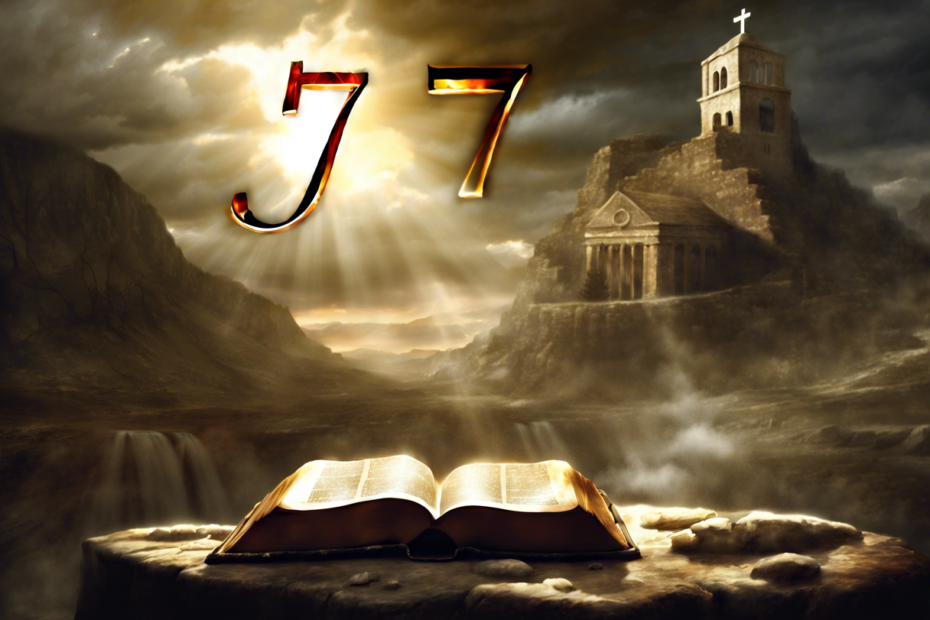The number seven has profound symbolic meaning in the Bible. It pops up frequently, from the 7 days of creation in Genesis to the 7 seals in Revelation. So what does this ubiquitous number actually represent?
We’ll explore the symbolism in 4 parts:
- Seven Represents Completion or Fullness
- Seven Appears in Key Biblical Events
- Seven and Biblical Imagery
- The Significance of 7
Seven Represents Completion or Fullness
The number 7 pervades many ancient cultures, where it took on mystical meaning representing concepts like wholeness and completion. We see this symbolism alive and well in the Bible too.
Most famously, God rested on the seventh day after working for six days to create the heavens and earth:
“By the seventh day God had finished the work he had been doing; so on the seventh day he rested” (Genesis 2:2)
The Sabbath day of rest comes after six days of work. Seven marks the end and signifies God’s complete, perfect creation.
We also see the idea of seven as fullness in:
- The seven spirits of God (Revelation 1:4, 4:5, 5:6) representing the fullness of the Holy Spirit
- Telling believers to forgive “seventy times seven” times (Matthew 18:22) conveying limitless forgiveness
So right from Genesis to Revelation, seven pops up highlighting ideas like finished work and spiritual perfection.
Seven Appears in Key Biblical Events
The symbolic potency of seven powers some pivotal biblical stories too:
- God tells Noah to take seven pairs of every clean animal onto the ark (Genesis 7:2) to repopulate the earth after the flood
- In Joshua 6, God orders Joshua to march the Israelites around Jericho for seven days blowing trumpets, causing the walls to fall on the seventh day
- In John’s gospel, Jesus performs seven miraculous signs
- The book of Revelation is structured around seven churches, seals, trumpets and bowls representing the final outpouring of God’s wrath
So over and over, we see the writers leveraging the symbolic weight of 7 in pivotal narratives – from judgment to redemption to new beginnings.
Seven and Biblical Imagery
The number seven also frequently appears in biblical metaphors and visions:
- In Revelation, there are seven golden lampstands representing the seven churches (Revelation 1:12-20)
- Jesus holds the seven stars (Revelation 1:16, 2:1) representing angels overseeing the seven churches
- The sacrificial lamb in Revelation has seven horns and seven eyes (Revelation 5:6) symbolizing his omnipotence
Using seven here evokes ideas of completeness, perfection, and fullness of light, vision and power.
The Significance of 7
So what are we to make of this recurring supercharged number? Here are some key takeaways on the symbolic meaning of seven in the Bible:
- Seven represents completion and fullness – specifically of creation, God’s spirit, forgiveness
- It’s leveraged in key narratives about new beginnings, judgment, and redemption
- Imagery with seven elements represents perfect vision, light, and power
While it had significance across the ancient world, biblical authors utilized the number seven and its widely understood symbolism to communicate their messages and visions about God effectively to their original audience.
The magical number seven isn’t some arbitrary digit with mere numerical meaning. Instead, its patterns throughout Scripture give it special symbolic significance. Every mention of seven represents the completion and perfection of the divine.
